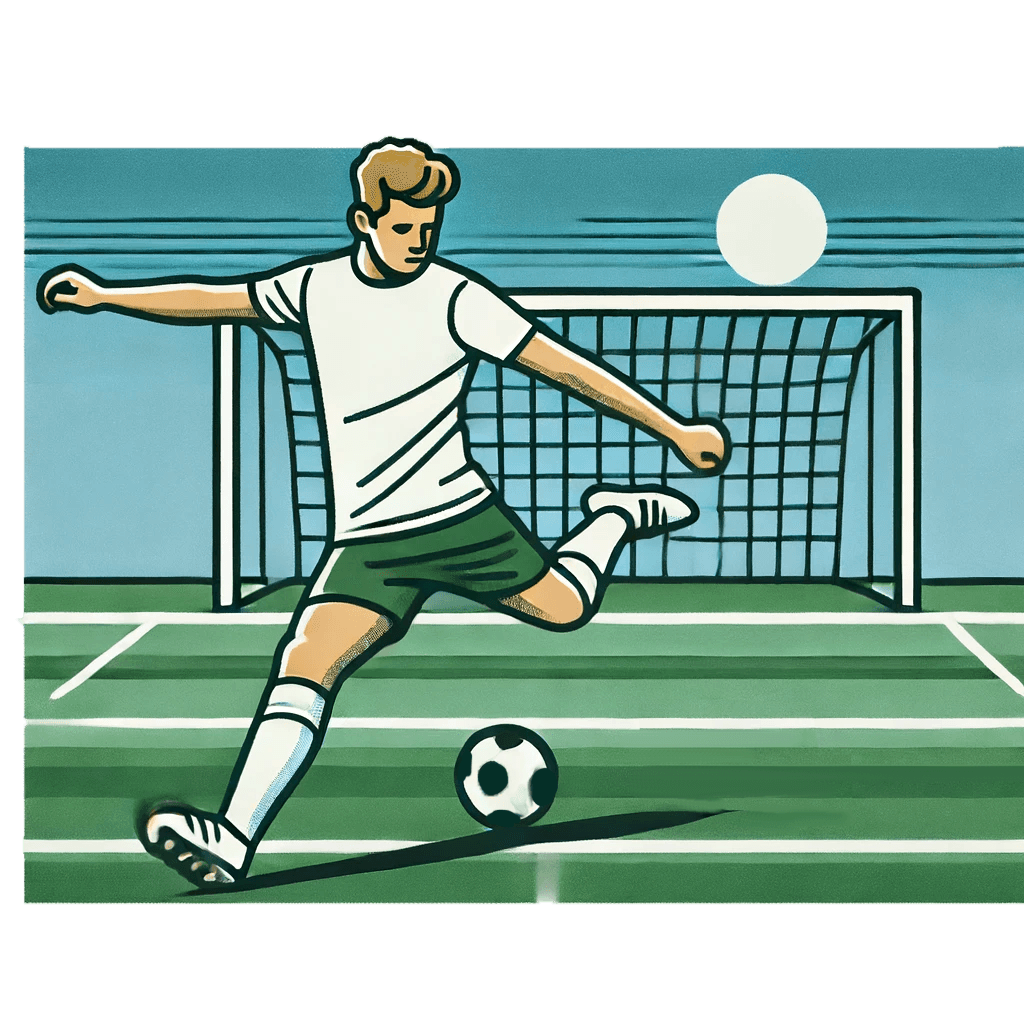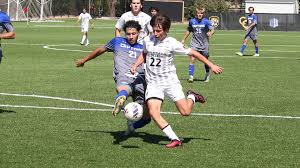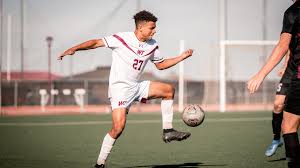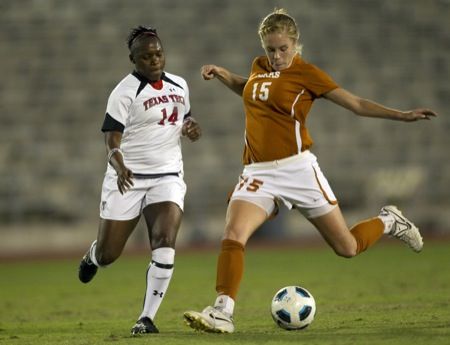Jun 4, 2024
•
Guides
The 10 Traits D1 Soccer Coaches Look for in Recruits (And How to Develop Them)
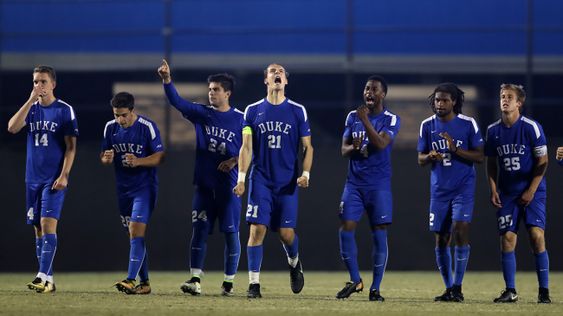
The latest on everything
College Soccer

Get our 5-minute, daily newsletter on what matters in college soccer.
Getting Recruited to Play D1 College Soccer
As a former D1 soccer player and current coach, I've been on both sides of the recruiting process. And let me tell you, it's not just about your skills on the ball.
Over the years, I've identified 10 key traits that D1 coaches look for when recruiting players. And today, I'm going to break each one down for you.
But before we dive in, I want to make one thing clear: every coach is different. Some prioritize certain qualities over others. However, after countless conversations with coaches across the country, I've found these 10 traits to be universally important.
So whether you're a high school freshman just starting your journey or a senior in the thick of the recruiting process, this article will give you a behind-the-scenes look at what it takes to play at the highest level.
Let's get started.
1. Technical Ability
First and foremost, D1 coaches want players who are technically sound. This means having a good first touch, being comfortable with the ball at your feet, and being able to execute a variety of passes and shots with both feet.
Think about it this way: at the D1 level, the game is faster and more physical than anything you've experienced before. If you can't control the ball under pressure or make quick decisions on the field, you'll struggle to keep up.
So how can you improve your technical ability? Here are a few tips:
- Practice with a purpose. Don't just go through the motions during training. Focus on specific skills you want to improve and put in the extra work before and after practice.
- Play small-sided games. 1v1, 2v2, and 3v3 games are great for developing close control and quick decision-making.
- Work on your weaker foot. Being able to play with both feet is a huge asset at the D1 level. Spend time each day working on passes, shots, and dribbling with your non-dominant foot.
2. Athleticism
In addition to technical ability, D1 coaches want players who are athletic and can physically compete at a high level. This means having speed, strength, agility, and endurance.
At the D1 level, you'll be going up against players who are bigger, faster, and stronger than what you're used to. If you can't keep up physically, you'll have a tough time making an impact on the field.
So how can you improve your athleticism? Here are a few suggestions:
- Hit the weight room. Building strength and power is crucial for success at the D1 level. Work with a strength coach or trainer to develop a program tailored to your needs as a soccer player.
- Focus on speed and agility training. Incorporate sprints, plyometrics, and footwork drills into your training routine to improve your speed and quickness on the field.
- Don't neglect endurance. Soccer is a 90-minute game, so you need to be able to maintain a high level of intensity for the full match. Include longer runs and high-intensity interval training in your conditioning program.
3. Soccer IQ
Soccer is a thinking game, and D1 coaches want players who have a high soccer IQ. This means having a good understanding of tactics, being able to read the game, and making smart decisions on the field.
At the D1 level, the margin for error is small. One mistake can lead to a goal and change the course of a game. That's why coaches value players who can think quickly and make good decisions under pressure.
So how can you improve your soccer IQ? Here are a few ideas:
- Watch high-level soccer. Pay attention to how players move off the ball, how teams organize defensively, and how attacks are built from the back.
- Study the game. Read books and articles about tactics and strategy. Learn about different formations and playing styles.
- Ask questions. Talk to your coaches and teammates about what they see on the field. Ask for feedback on your decision-making and positioning.
4. Competitiveness
D1 soccer is not for the faint of heart. It's a highly competitive environment where every game and every training session matters. That's why D1 coaches look for players who have a strong competitive drive and a will to win.
Think about the best players in the world. They all have a fierce desire to be the best and a hatred of losing. They're the ones who are always pushing themselves and their teammates to be better.
So how can you show your competitiveness to D1 coaches? Here are a few ways:
- Bring intensity to every training session. Don't just go through the motions. Compete hard and push yourself to be better every day.
- Embrace challenges. Don't shy away from tough opponents or difficult situations. Embrace the opportunity to test yourself and prove what you can do.
- Be a leader. Set the tone for your team with your work ethic and competitiveness. Encourage your teammates and hold them accountable.
5. Coachability
No player is perfect, and D1 coaches know that. That's why they value players who are coachable and willing to learn and improve.
At the D1 level, you'll be pushed outside of your comfort zone and asked to do things differently than what you're used to. You'll need to be open to feedback and willing to make changes to your game.
So how can you show your coachability to D1 coaches? Here are a few tips:
- Listen and apply feedback. When a coach gives you feedback, listen carefully and try to implement it in your game.
- Ask questions. If you don't understand something or want to know more, ask questions. Coaches appreciate players who are engaged and want to learn.
- Be open to new ideas. Don't be set in your ways. Be willing to try new things and approach the game with an open mind.
6. Academics
While soccer is important, D1 coaches also want players who are strong students and can handle the academic rigors of college. After all, you're a student-athlete, not just an athlete.
At the D1 level, you'll be balancing a full course load with a demanding soccer schedule. You'll need to be organized, disciplined, and able to manage your time effectively.
So how can you show D1 coaches that you're a strong student? Here are a few ways:
- Get good grades. Aim for a high GPA and take challenging courses. Show that you're willing to work hard in the classroom.
- Take the SAT/ACT seriously. Prepare for the tests and aim for a high score. Many D1 programs have minimum test score requirements for recruits.
- Communicate with coaches about your academics. Let them know about your academic goals and achievements. Show that you're committed to being a successful student-athlete.
7. Character
D1 coaches want players who are not just good soccer players, but good people as well. They want players who will represent their program well both on and off the field.
Think about it this way: as a D1 soccer player, you'll be in the spotlight. You'll be representing your school and your team in everything you do. Coaches want players who will be positive role models and leaders in the community.
So how can you show D1 coaches that you have strong character? Here are a few ways:
- Be a good teammate. Support and encourage your teammates. Be a positive influence in the locker room and on the field.
- Show respect for opponents, referees, and coaches. Play hard but play fair. Don't engage in unsportsmanlike behavior.
- Be involved in your community. Volunteer, participate in service projects, and give back to others. Show that you care about more than just soccer.
8. Fit with Program
Every D1 program is different, and coaches want players who will fit well with their team's culture and style of play. They want players who will buy into their system and contribute to the team's success.
Some programs may prioritize speed and athleticism, while others may value technical ability and soccer IQ more highly. Some coaches may want vocal leaders, while others may prefer quiet, lead-by-example types.
So how can you show D1 coaches that you're a good fit for their program? Here are a few tips:
- Do your research. Learn about the program's playing style, coaching philosophy, and team culture. Attend camps or clinics to get a feel for the coaches and players.
- Communicate with coaches. Reach out to coaches and express your interest in their program. Ask questions about their expectations for players and how you could contribute to the team.
- Be authentic. Don't try to be someone you're not just to impress a coach. Be true to yourself and let your personality shine through.
9. Work Ethic
D1 soccer is a grind, and coaches want players who are willing to put in the work day in and day out. They want players who are self-motivated and always looking for ways to improve.
At the D1 level, you'll be pushed to your limits physically and mentally. You'll have early morning conditioning sessions, long practices, and intense games. You'll need to be able to push through fatigue and adversity.
So how can you show D1 coaches that you have a strong work ethic? Here are a few ways:
- Be consistent. Show up to every practice and game ready to work hard. Don't take days off or go through the motions.
- Put in extra work. Stay after practice to work on your skills or do extra conditioning. Show that you're willing to go above and beyond.
- Be coachable. Listen to feedback and be willing to make changes to your game. Show that you're always looking for ways to improve.
10. Potential
Finally, D1 coaches want players who have the potential to grow and develop over their four years in college. They want players who have a high ceiling and can contribute to the team's success not just as freshmen, but as upperclassmen as well.
This means that coaches are not just looking at your current abilities, but also your potential for improvement. They want to see that you have the physical tools, technical foundation, and mental drive to keep getting better.
So how can you show D1 coaches your potential? Here are a few tips:
- Show progress. If coaches see you multiple times over the course of your high school career, show them how you've improved and developed as a player.
- Be open to feedback. Show coaches that you're willing to learn and make changes to your game. Demonstrate that you have the potential to keep growing and improving.
- Set goals. Communicate your long-term goals to coaches. Show them that you have a vision for your future and are committed to reaching your full potential.
There you have it - the 10 traits that D1 soccer coaches look for in recruits. Technical ability, athleticism, soccer IQ, competitiveness, coachability, academics, character, fit with program, work ethic, and potential.
Of course, no player is perfect and coaches don't expect you to be. But if you can demonstrate these qualities consistently, you'll put yourself in a great position to play at the highest level.
So what's next? Start putting these traits into practice every day. Challenge yourself to get better both on and off the field. And don't be afraid to reach out to coaches and express your interest in their programs.
Related
#1 College Soccer Newsletter
Join thousands of current readers and get our 5-minute, daily newsletter on what matters in college soccer.
